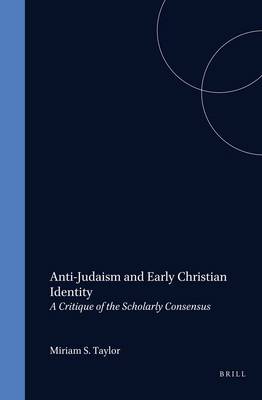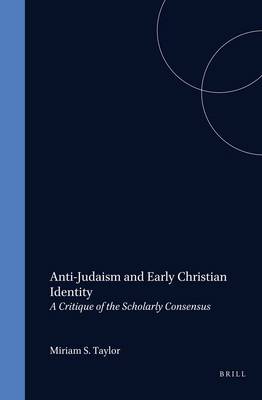
- Afhalen na 1 uur in een winkel met voorraad
- Gratis thuislevering in België vanaf € 30
- Ruim aanbod met 7 miljoen producten
- Afhalen na 1 uur in een winkel met voorraad
- Gratis thuislevering in België vanaf € 30
- Ruim aanbod met 7 miljoen producten
Zoeken
€ 257,95
+ 515 punten
Omschrijving
Against the scholarly consensus that assumes early Christians were involved in a rivalry for converts with contemporary Jews, this book shows that the target of patristic writers was rather a symbolic Judaism, and their aim was to define theologically the young church's identity.
In identifying and categorizing the hypotheses put forward by modern scholars to defend their view of a Jewish-Christian "conflict", this book demonstrates how current theories have generated faulty notions about the perceptions and motivations of ancient Christians and Jews.
Beyond its relevance to students of the early church, this book addresses the broader question of Christian responsibility for modern anti-Semitism. It shows how the focus on a supposedly social rivalry, obscures the depth and disquieting nature of the connections between early anti-Judaism and Christian identity.
In identifying and categorizing the hypotheses put forward by modern scholars to defend their view of a Jewish-Christian "conflict", this book demonstrates how current theories have generated faulty notions about the perceptions and motivations of ancient Christians and Jews.
Beyond its relevance to students of the early church, this book addresses the broader question of Christian responsibility for modern anti-Semitism. It shows how the focus on a supposedly social rivalry, obscures the depth and disquieting nature of the connections between early anti-Judaism and Christian identity.
Specificaties
Betrokkenen
- Auteur(s):
- Uitgeverij:
Inhoud
- Aantal bladzijden:
- 220
- Taal:
- Engels
- Reeks:
- Reeksnummer:
- nr. 46
Eigenschappen
- Productcode (EAN):
- 9789004101869
- Verschijningsdatum:
- 1/01/1994
- Uitvoering:
- Hardcover
- Formaat:
- Genaaid
- Afmetingen:
- 160 mm x 239 mm
- Gewicht:
- 453 g

Alleen bij Standaard Boekhandel
+ 515 punten op je klantenkaart van Standaard Boekhandel
Beoordelingen
We publiceren alleen reviews die voldoen aan de voorwaarden voor reviews. Bekijk onze voorwaarden voor reviews.








